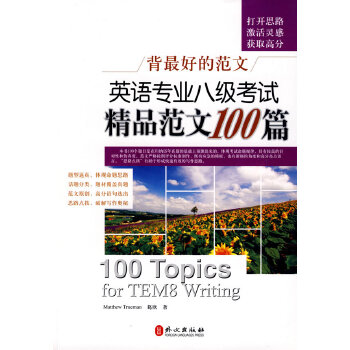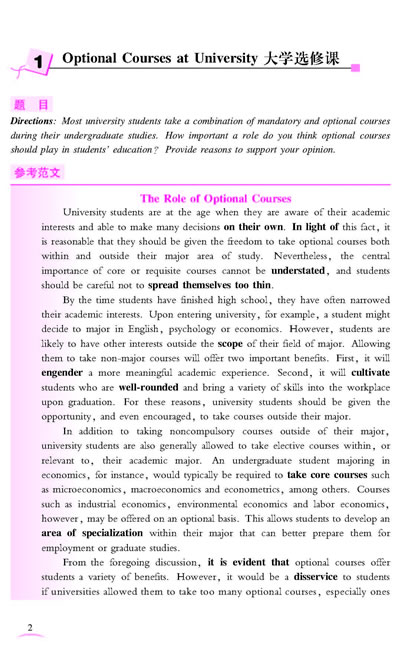内容简介
高分作文,你也能写!
? 文章按照常考题目分类,覆盖考试话题,题型充分体现真题特色。
? 范文严格按照考题要求和评分标准编写,角度新颖、语言地道、表达丰富。
? 外教原创范文让你学到真正的英语。词汇句型丰富,帮你越过语言难关。
? 每课的“思路点拨”点透思维过程,帮你形成快速有效的写作思路。
? 书后附常用连接词等写作必备词汇,为文章添彩。
本书100个题目是在归纳历年真题的基础上预测出来的,体现考试命题规律,具有较高的针对性和仿真度。范文严格按照评分标准创作,既有应急的模板,也有新颖的加度和高分亮点语言。“思路点拨”有助于形成快速有效的写作思路。
? 文章按照常考题目分类,覆盖考试话题,题型充分体现真题特色。
? 范文严格按照考题要求和评分标准编写,角度新颖、语言地道、表达丰富。
? 外教原创范文让你学到真正的英语。词汇句型丰富,帮你越过语言难关。
? 每课的“思路点拨”点透思维过程,帮你形成快速有效的写作思路。
? 书后附常用连接词等写作必备词汇,为文章添彩。
本书100个题目是在归纳历年真题的基础上预测出来的,体现考试命题规律,具有较高的针对性和仿真度。范文严格按照评分标准创作,既有应急的模板,也有新颖的加度和高分亮点语言。“思路点拨”有助于形成快速有效的写作思路。
显示全部信息













